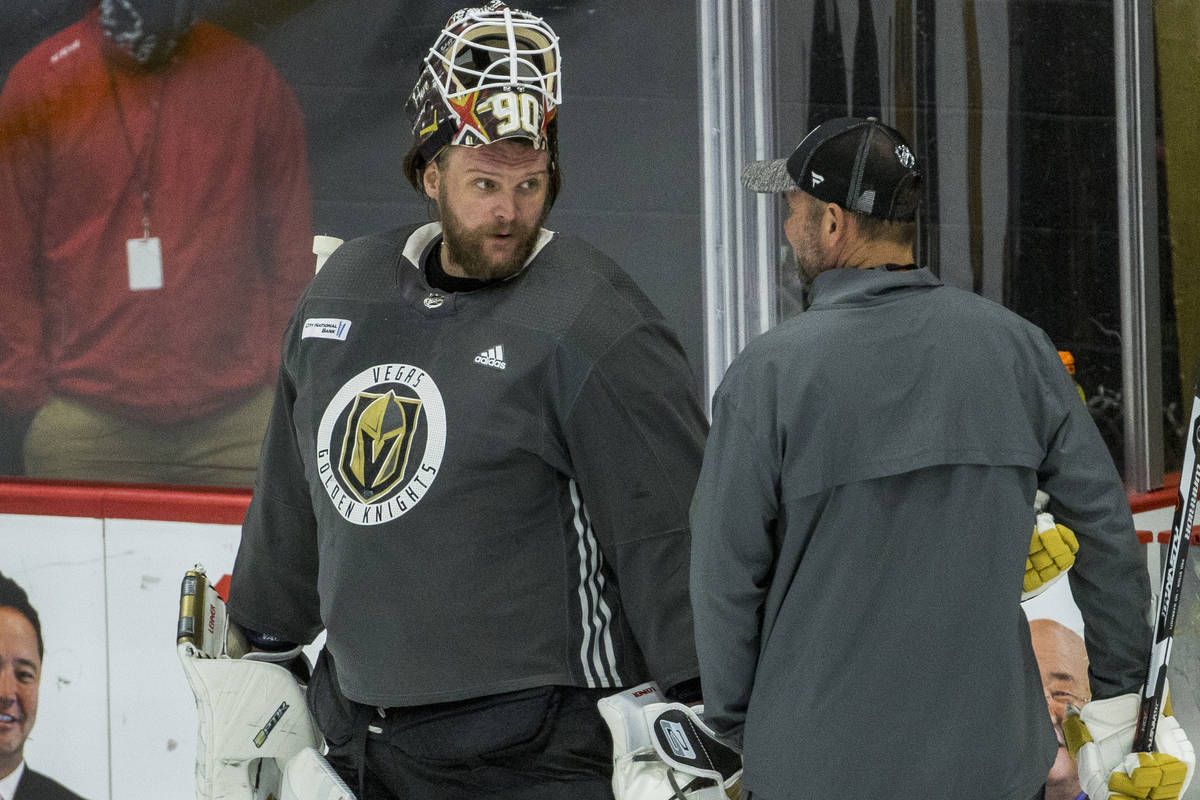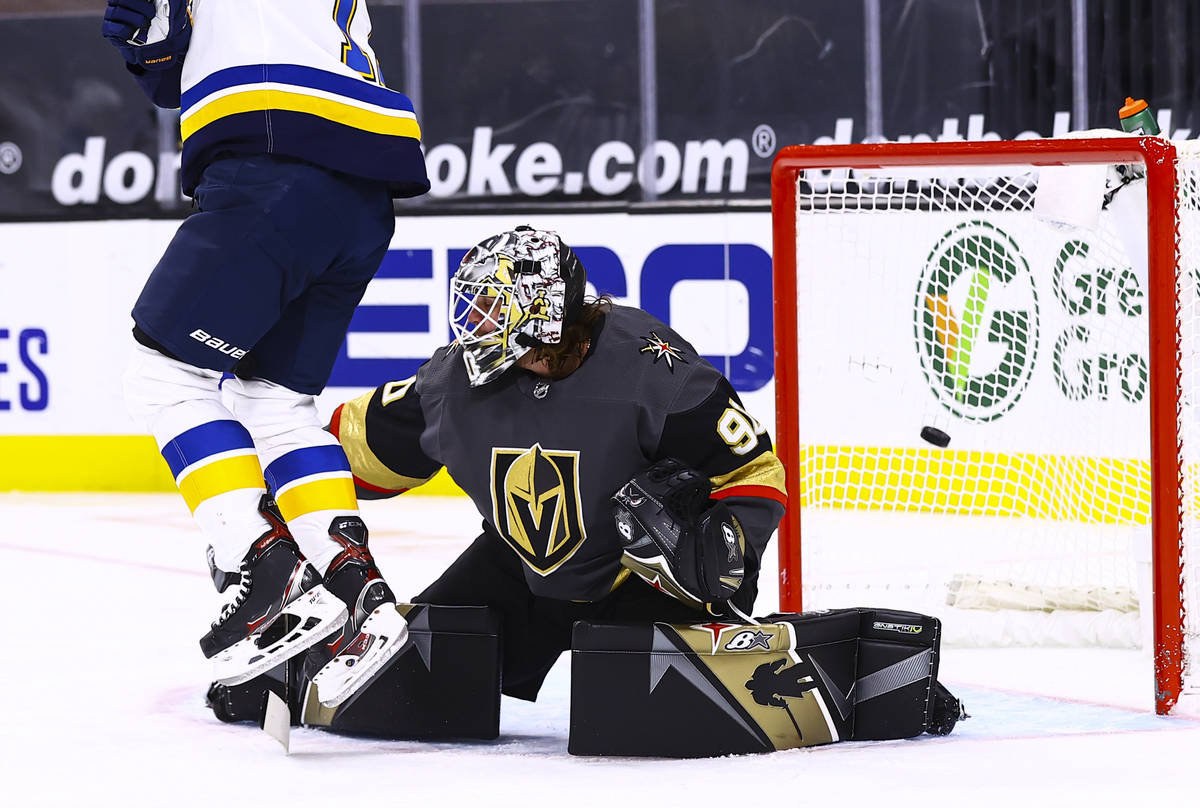Robin Lehner right to be upset having to defend injury
Because the demands on a goalie are mostly mental … for a goalie the biggest enemy is himself. The stress and anxiety he feels when he plays, the fear of failing, the fear of being embarrassed, the fear of being physically hurt, all the symptoms of his position, in constant ebb and flow, but never disappearing. — Hall of Fame goaltender Ken Dryden
To all that, Golden Knights goalie Robin Lehner would add one more fear. The fear of being open about his struggles with mental illness and the blowback that comes because of the incorrect assumptions people make about him as a result.
I was reminded of all this on Wednesday when Lehner addressed the media for the first time since being injured Feb. 7 and was put in the position of having to defend himself for having suffered what he says was a concussion.
The Knights called it an upper body injury. According to the local hockey club, there are only two kinds of injuries one can suffer: upper body or lower body.
Each NHL team has a different policy for disclosing injuries. Some are more forthcoming than others; there is no mandate from the league about how much they should disclose. It is believed the reason the Knights (and other teams) are vague about injuries is they don’t want liberties taken with a player who may be performing at less than full strength by slashing at his bum hamstring.
Open book
In most cases, the Knights’ attempt to protect their players is understandable. Even laudable. But in Lehner’s case and given his history, the club should have been more forthright about what was ailing him.
Last year during the playoffs, the big goalie from Sweden spoke candidly about past struggles with mental health and substance abuse. In 2018, he detailed his diagnosis — bipolar with attention deficit hyperactivity disorder (ADHD), with post-traumatic stress disorder (PTSD) and trauma — in an essay for The Athletic.
The Knights are his fourth team in five seasons. But last season he quickly established himself in Las Vegas after being acquired from Chicago and became the Knights’ go-to goalie during the playoffs.
But this season as the days mounted and the Knights offered no comment about his current situation, rumors began to swirl about his state of mind. When the club failed to disclose he had suffered a concussion, Lehner was put in the awkward position of having to again address his mental well-being.
Same old story
“The stigma around mental health is insane,” he said, perhaps not choosing words wisely but passionately. “It’s unfortunate, because a mental health problem is no different than a knee problem or a shoulder problem or something like that. It’s treatable, except the stigma makes it harder for people who struggle with mental health.”
Some things never change, said Clint Malarchuk, who spent 10 years as an NHL goalie and was a fan favorite with the International Hockey League’s Las Vegas Thunder. Contacted at his ranch near Gardnerville, Malarchuk said he had been dealing with mental issues long before nearly losing his life on the ice when his throat was slashed by an opponent’s skate while he was playing for the Buffalo Sabres.
“Mental health is a big topic that nobody wants to talk about,” he said when asked about the stigma Lehner mentioned. “The league has got to be real careful about that. But for a player to be forthright about it, that just clears the air. When I was in Buffalo and everything went down … it was very hush-hush.”
More than 30 years later, discourses on mental health and sports remain as quiet as T-Mobile Arena during a pandemic. To borrow from Lehner’s vocabulary, that seems insane.
Contact Ron Kantowski at rkantowski@reviewjournal.com or 702-383-0352. Follow @ronkantowski on Twitter.































